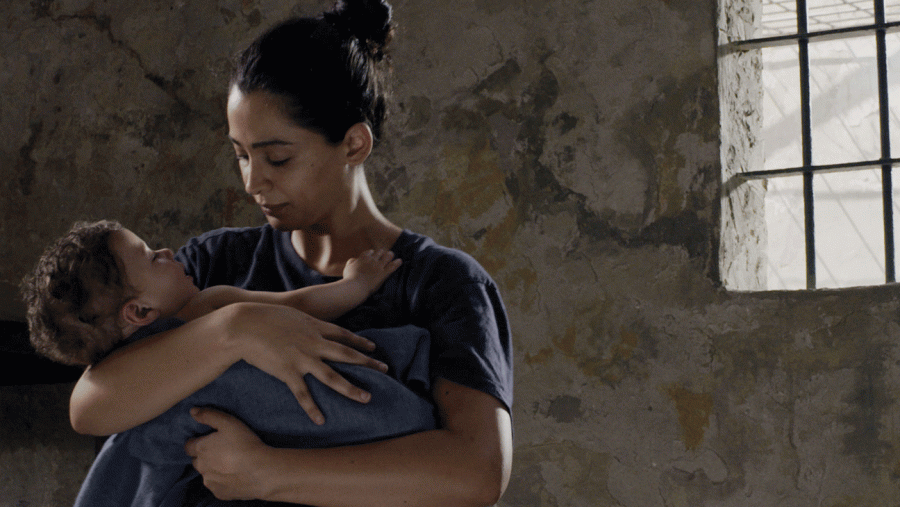Masri’s “3000 Nights” Discusses Palestinian Justice
Filmmaker-in-residence Mai Masri’s film highlights the struggles a Palestinian woman faces as she deals with pregnancy while imprisoned.
On Friday, November 3 in Golden Auditorium, the Arts department showed 3000 Nights, a feature film directed by Mai Masri. This film was brought to campus through the Colgate/Flaherty Distinguished Global Filmmaker Residency. Masri spent the week at Colgate interacting with students and faculty through film screenings, question and answer sessions, dinners and sitting in on classes.
Masri made sure to thank the Film and Media Studies staff as well as the student fellows who helped bring this event together. Erin Moroney, senior student fellow, described the work that went into putting on the event.
“We were in charge of putting together welcome packets and dealing with a lot of logistics throughout the week. I also feel like I’ve gotten a chance to bond with Mai through all the one on one interactions we’ve gotten to have. It also gave me a look at what goes on behind the scenes in executing an event like this,” Moroney said.
Masri is a Palestinian filmmaker who graduated from UC Berkeley with a degree in Film Studies. Masri saw the power that documentary can bring to the viewer.
“Film is helpful in seeing the Palestinian people and the politics surrounding them,” she said.
While 3000 Nights is Masri’s first fiction film, it was heavily influenced by Masri’s past experience in documentary film. It is based on a true story that was told to Masri. Masri wished to capture the reality that the story provided through the lens of a hand held camera as well as various shots and framing.
The film itself is about a woman named Layala who prepares to leave the Israeli-occupied West Bank to journey to Canada with her recently married husband. However, her plan is disrupted when she is arrested for helping a teenage boy accused of an attack on an Israeli checkpoint. Layala is then sentenced to spend eight years – 3,000 nights – in prison. While in prison, Layala discovers that she is pregnant. The film follows the struggles of Layala raising her child in prison while also participating in a resistance movement against the occupation with her fellow Palestinian prisoners.
In the Q&A session following the film screening, Masri explained that she wanted the prison to be present throughout the film.
“By having shots that included the prisoners looking through the bars, or the bars casting a shadow across the walls, I wanted the viewer to know the presence of the prison,” Masri said.
Masri went on to explain that she saw the prison as a metaphor for the Israeli occupation in Palestine. The film itself was shot within an old military prison.
“The acting becomes really realistic in this setting. A lot of the actors themselves were prisoners so they brought their own experience to the film,” Masri said.
All of the actors in the film were Palestinians, despite the film taking place in an Israeli-controlled prison that had both Palestinian and Israeli prisoners. Masri mentioned that when she showed the film in the Middle East, the Israeli people who watched the film could not tell the difference, and believed that the Israeli guards were in fact played by Israelis, not Palestinians. Masri made a point of explaining how even moments of solidarity in the film were real, and when you put Israelis and Palestinians together they aren’t so different after all.
Masri’s work suggests that real life can be stranger than fiction. The story she portrays represents a collective experience. Approximately 20-30 percent of Palestinians have been in prison, and prison births are in fact quite common. Masri wanted to show something people needed to see – stories that are generally left untold, giving voice to the voiceless.
Contact Alex Weimer at [email protected].







